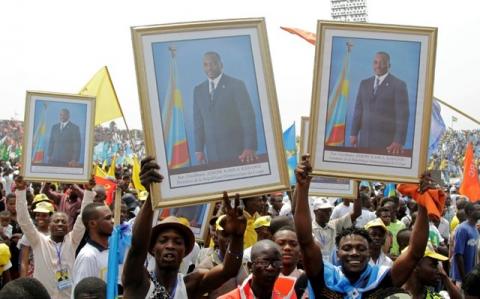Advertisement
Congo political rift likely to spark 'large-scale' violence - UN
UNITED NATIONS (Reuters) - There is "extreme risk" to the stability of Democratic Republic of Congo as a deepening political rift over President Joseph Kabila's future will likely spark large-scale violence, the United Nations envoy to the country said on Tuesday.
Kabila, in office since 2001, is barred by constitutional term limits from standing for a third term. But the country's electoral commission says logistical and budgetary obstacles will prevent it from organizing a new poll before December 2018.
"Actors on all sides appear more and more willing to resort to violence to achieve their ends," Maman Sidikou, head of the 18,000-strong U.N. peacekeeping mission in Congo, known as MONUSCO, told the U.N. Security Council.
"While MONUSCO will do everything it can within its mandate to protect civilians, the scope of the threats dramatically outstrip the mission's capabilities," he said.
Anger has been simmering for months in Congo over what opponents of Kabila believe are his efforts to hold on to power as other African leaders have done. In March, the U.N. Security Council called on the country to organize a poll this year.
Last month anti-government protests in the capital Kinshasa turned violent and dozens of people were killed. The Security Council called on Congolese authorities to exercise maximum restraint and urged the leaders not to exacerbate the situation.
A Congolese opposition leader was arrested late on Sunday for his role in anti-government demonstrations last month in which more than 50 people died, the government said on Monday, leading to threats of more protests if he is not released.
"The Democratic Republic of Congo has entered a period of extreme risk to its stability," Sidikou said. "The coming period will certainly be extremely difficult, the tipping point in the serious violence could be reached very quickly."
Congo, Africa's top copper producer, has been further destabilized by the fall in global commodity prices, which forced the government in June to cut its 2016 budget.
(Reporting by Michelle Nichols; Editing by Sandra Maler)



















Add new comment